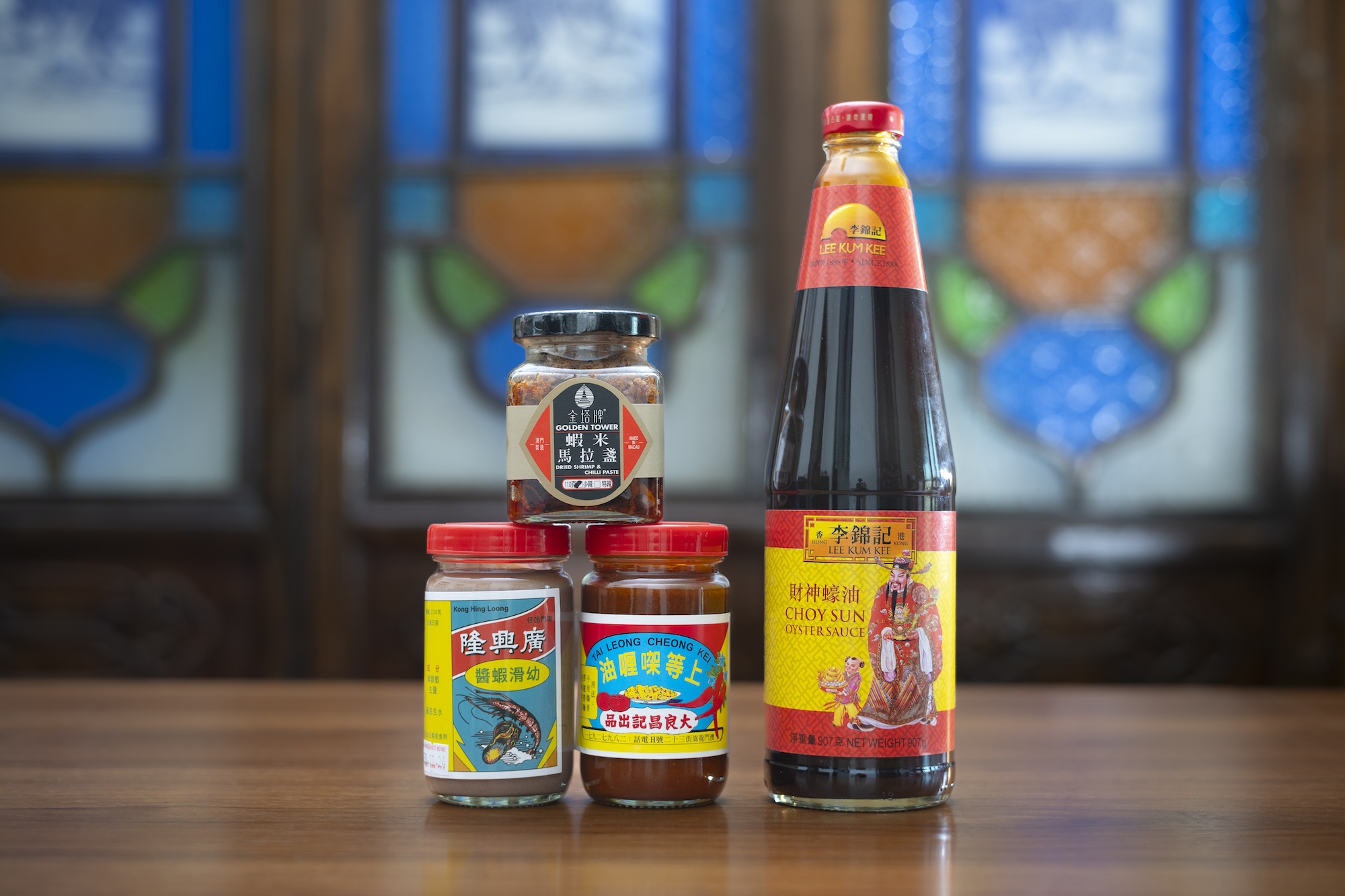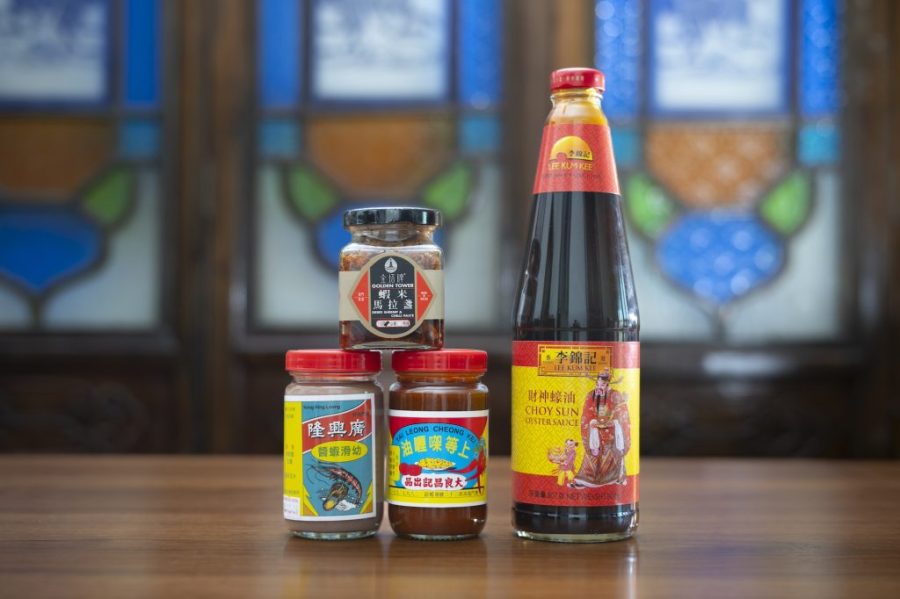When it comes to Macao’s culinary souvenirs, visitors often turn to the crumbly almond cookies of Koi Kei or the creamy egg tarts of Lord Stow’s – and with good reason. Both represent aspects of the food culture of this city, where global flavours have converged for centuries. If you’re after something more unusual however – perhaps you’re picking up something for a seasoned gourmand or looking to add a dash of exotica to your own pantry – consider Macao’s impressive array of local sauces and condiments.
They have histories dating back many decades or, in some cases, over a hundred years, but it wouldn’t be fair to think of them merely as culinary relics, as they are still being made and enjoyed today. The wide spectrum of flavours they offer include sweet, umami and spicy, meaning that there is something to suit everyone’s palate. Best of all, Macao’s sauces are highly versatile and can be used to add interest to just about any dish, whether it be a bowl of noodles or a piquant curry or quick stir-fry.
Here’s a list of four of the most well-known jiangyuan (shops that exclusively make and sell sauces) for you to visit.
Kong Hing Loong (廣興隆蠔油蝦醬)
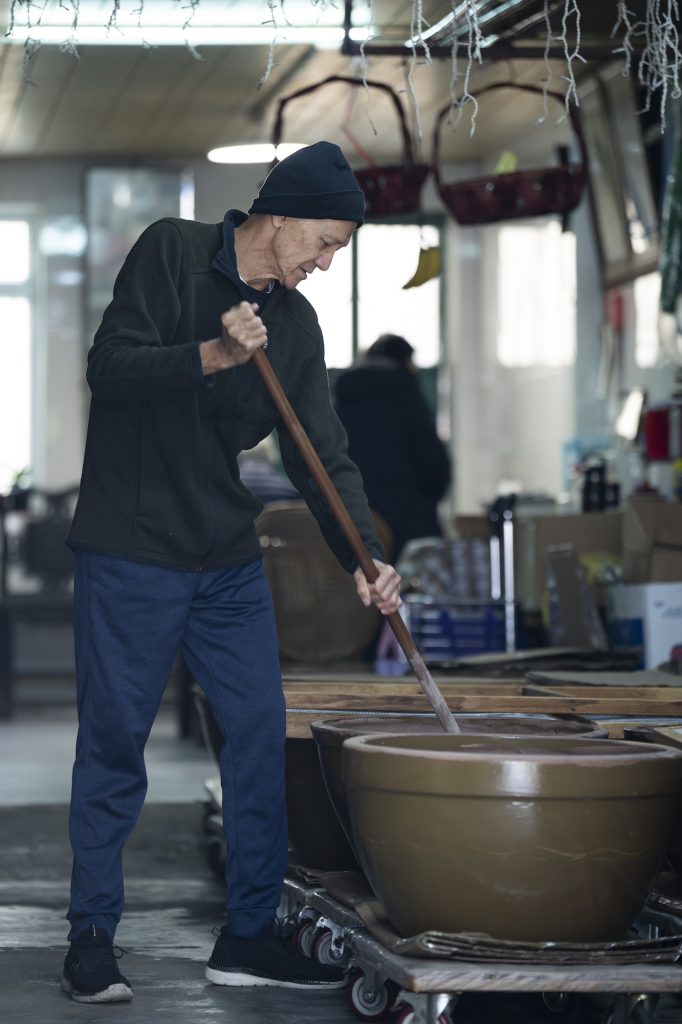
Famed for its pungent shrimp paste, Kong Hing Loong has a history of over a hundred years. The store was founded in 1900 and has been part of the Pong family for three generations.
The Pongs first settled in Taipa when his grandfather moved there from the Nanhai District in Guangdong. Much like the other settlers on the island, the family initially eked out a living by primarily engaging in the sale of fresh marine products, although they also manufactured oyster sauce and shrimp paste as a side business.
“Later on, the waters became too shallow, and the fishing boats couldn’t enter the shores here,” the second-generation owner Pong Kin Hon recounted. “Gradually, (the boats) moved to places like Hong Kong and Vietnam.” As a result, “many marine product dealers were unable to continue operating, and they closed down in succession.”
Recalling life during this period, Pong says that it was “very difficult (and) the store’s business wasn’t good,” as they were not breaking even.
Around the age of 18, Pong took over what was then still a business focused primarily on the selling of fresh marine products. The decision was made to shift the focus of the family business to the production of sauces.
This proved to be a wise choice, as Kong Hing Loong was able to weather the economic turmoil brought by the exodus of fishing boats. Although Pong officially took over the store when he came of age, he had already started helping his father out much earlier.
“I’ve been in this business for about seventy-something years and started helping my father from the age of eleven,” he once recalled in an interview.
As the eldest son, Pong was expected to take over the management of the store when his father’s health began to falter.
In a case of history repeating itself, Pong has since passed the mantle to his own son. “In recent years, I feel my health hasn’t been too good…” he said. “So I called my son to come and help … it’s better than having this traditional craft production die out.”
The third generation, Paulo Pong, who was born in the store, now runs the business, though the older Pong can still be found helping out, despite being in his nineties.
In keeping with tradition, Kong Hing Loong eschews machinery. The shrimp paste is sun-dried after fermentation, then packaged in jars that are labelled by hand.
“Other people use machinery to produce 1,000 jars [of shrimp paste], but I produce 100 jars [by hand],” remarked the senior Pong.
According to Paulo, the making of shrimp paste is an arduous and complex art that requires attention to detail in terms of the weather, ingredients and moisture.
In many ways, Kong Hing Loong is a mirror of Macao’s development. Whereas the store’s customer base in years past mainly consisted of local residents and some Hong Kong tourists, the rapid growth of Macao’s tourism industry has meant that mainland Chinese visitors now make up a large chunk of their clientele.
Kong Hing Loong’s zesty shrimp paste comes in small, medium and large jars costing 30, 40 and 80 patacas respectively. Use it sparingly in stir-fries – it’s particularly suited to pork, calamari, green beans and spinach.
Store: Kong Hing Loong
Address: 20 Rua do Regedor, Macao
Telephone: (853) 2882 7028
Opening Hours: 8 am to 6 pm
Lee Kum Kee (李錦記)
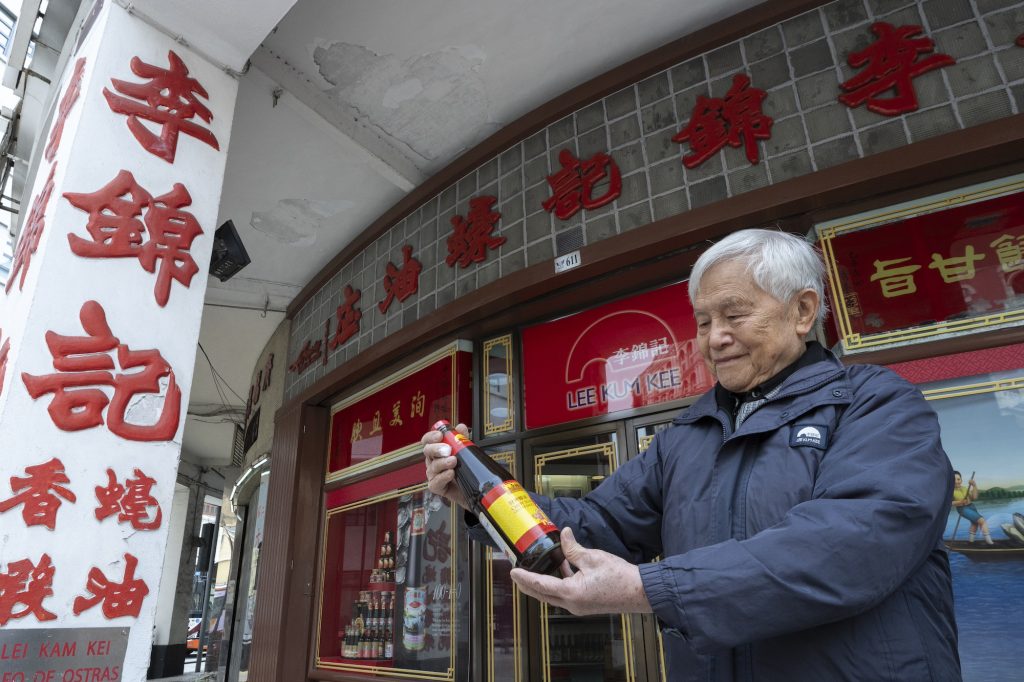
Lee Kum Kee is one of the most prominent brands for Chinese sauces worldwide, manufacturing over 200 different types of condiments, although it is most famous for its oyster sauce which helped to put the company on the map.
Nowadays, most people associate the 130-plus-year-old company with Hong Kong, and rightfully so, as its gold label logo prominently prints the name of the city where it is currently headquartered. For thirty years, however, the company’s main base of operations was Macao.
When it was first established in 1888, Lee Kum Kee was based in Nanshui village, Guangdong Province, but its premises were destroyed by fire and the company’s founder relocated his business to Macao. The brand made its home in Macao from 1902 to 1932 before shifting its main office to Hong Kong.
However, Lee Kum Kee’s presence in Macao can still be felt, perhaps most prominently in its old store which is located in a 105-year-old building in the heart of the city. The shop is managed by the affable Chang Chin Vai or Uncle Vai, as he is affectionately known to locals, who began working there under the auspices of the third-generation owner, Lee Man Tat, in 1950. As a matter of fact, Chang is currently the company’s longest-serving employee.
Every morning, the eighty-eight-year-old Chang dutifully opens the shop and keeps himself occupied with a range of tasks such as organising the stock, keeping the store spotless, dealing with customers and handwriting their transactions in his notebook.

When Chang is not busy, he can be found sitting comfortably behind his desk where he reads the paper, listens to the radio and occasionally sings.
Despite being well past retirement age, the conscientious worker has no intention of hanging up the gloves any time soon, as he has a strong desire to continue working, as well as an attachment to the Lee Kum Kee brand.
“Personally, I feel very happy to have been able to serve the company from its humble beginnings all the way to its success,” Chang remarked. “In the old days, there were only two products. It was only until the third generation that the company flourished and achieved its present worldwide fame.”
When it comes to the store’s customer base, Chang says that both locals and tourists visit the store, however, “nowadays, it’s mostly tourists who come … locals will go to the supermarkets.”
Fortunately, Chang still manages to maintain a loyal local customer base as the Lee Kum Kee head office has given him the special privilege of giving discounts to regular clients.
The store features a range of Lee Kum Kee sauces to choose from, with a bottle of the company’s signature oyster sauce costing 22 patacas. Add it to both meat and vegetable stir-fries.
Store: Lee Kum Kee’s Oyster Production House
Website: https://corporate.lkk.com/en/
Address: 611 Avenida de Almeida Ribeiro, Macao
Contact: (853) 2855 6699
Opening Hours: 9:50 am – 5 pm
Tai Leong Cheong Kei (大良昌記)
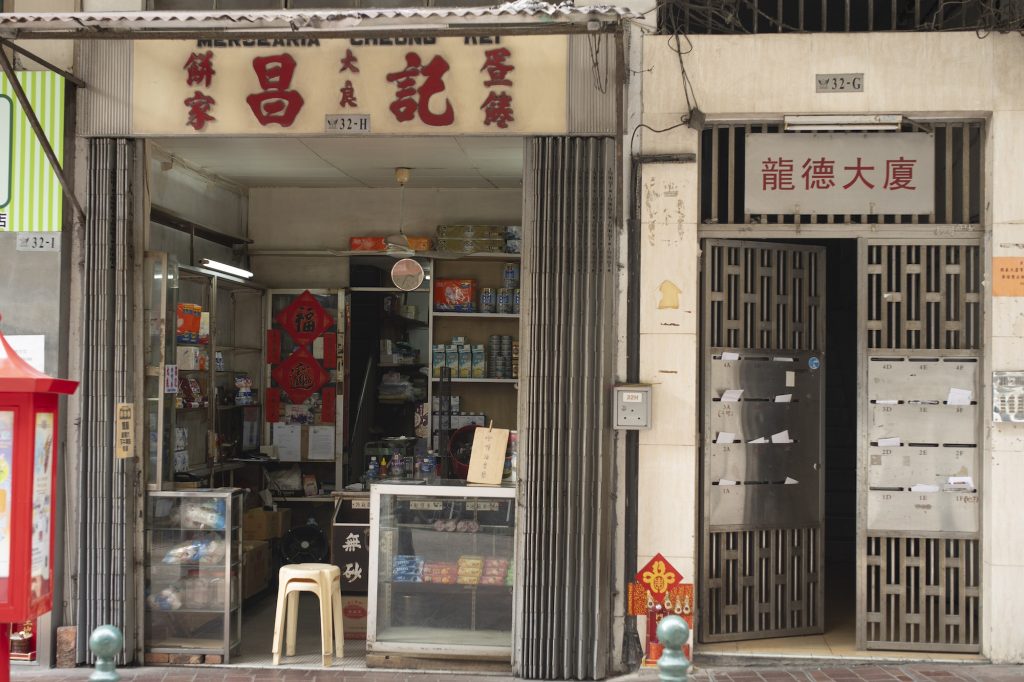
Located in Rua Central and within walking distance from the Government Headquarters, Tai Leong Cheong Kei is an unassuming two-storey store that is famous for its aromatic and spicy curry paste.
The iconic paste is made in-house in the workspace situated in the back half of the first floor. The front half functions as a shop, while the second floor serves as the living quarters. All in all, the whole store measures approximately 70 square metres.
Currently, the store is managed by third-generation owner, Sio Ng, and his aunt.
Born in 1990, Sio Ng was originally a banker, but decided to assist with the family business “mainly (because) the elderly in the family were all retiring.” He also admitted that operating the family store is a more lucrative venture compared to working in a bank.
Before Sio Ng and his aunt took the helm, the business originally belonged to his grandfather who founded the store and concocted the curry paste recipe. Sio Ng, however, never had the opportunity to know the patriarch personally, as he passed away shortly after Sio Ng was born.
According to stories that he heard from older relatives, his grandfather moved to Macao from Guangdong province in the 1950s and worked many different jobs before finally deciding to open a business based on a secret curry paste recipe that he invented, which he passed to Sio Ng’s aunt who then relayed it to him.
“We produce the paste ourselves, we package it ourselves and we sell it ourselves,” remarked Sio Ng, the third-generation owner of the forty-year-old store, in a 2019 interview. Despite the store’s modest size, it has expanded its distribution network to other cities such as Hong Kong and Zhuhai and can also be found on online platforms such as Taobao.
In recent years, business has been booming for Tai Leong Cheong Kei, as Sio Ng points out that “the tourist numbers have increased” and “the store’s business volume has expanded by five to sixfold.”
Indeed, the curry paste has been so popular that there are sometimes lines of customers waiting to purchase a jar.
To ensure that everyone manages to taste the family’s delectable condiment, customers are limited to a purchase of three jars per day, with a jar costing 45 patacas. Besides vegetable and meat curries, try using a dab of it in stir-fried noodle or rice dishes.
Store: Tai Leong Cheong Kei
Address: 32 Rua Central, Macao
Telephone: (853) 6666 5913 or (853) 2897 2971
Opening Hours: 2 – 8 pm
Golden Tower (金塔牌)
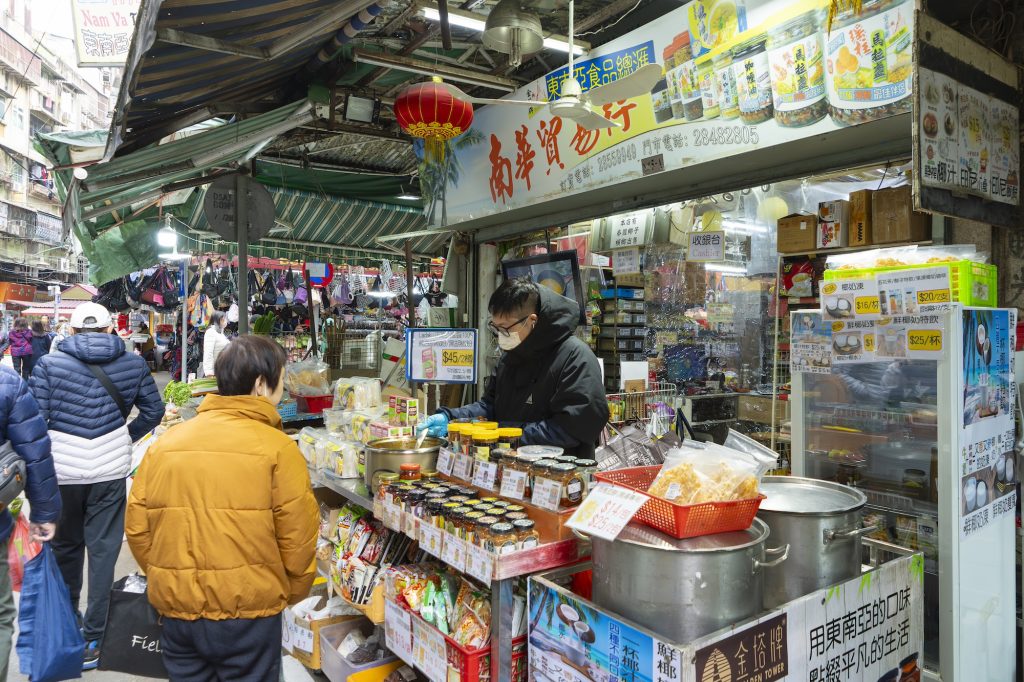
Golden Tower specialises in localised versions of Southeast Asian sauces. It is part of the Nam Va Trading company which was established by entrepreneur Ho Veng Ian in 1974.
Originally from Myanmar, Ho relocated to Macao in the sixties in order to avoid the anti-Chinese riots that were targeting Chinese-Burmese such as himself at the time.
Like many of his compatriots in Macao, he resided in the Three Lamps District (Rotunda de Carlos da Maia) and tried to find work. Eventually, Ho settled on starting his own store as the differences in culture and language proved to be too great of a barrier in terms of employment.
Initially, his business was focused on the sale of imported products that were primarily sourced from Myanmar and Malaysia. In the 1990s, however, he developed his own unique brand of Burmese-inspired sauces because he noticed that the Southeast Asian sauces in Macao did not cater to local tastes.
“Southeast Asian sauces are mostly spicy or salty, so [my father] continuously researched and gradually localised the Burmese flavour,” said son Patrick Ho, the second-generation owner of the company.
The senior Ho was so assiduous in his research that he ventured back to his home country where he spent several months studying with experts. “He started learning how to produce belacan (a type of shrimp paste) and how to make mohinga (a type of fish soup),” Patrick Ho notes.
Equipped with the new found knowledge, Ho Veng Ian returned to Macao where he released his Golden Tower brand of sauces.
Currently, there are five different flavours of sauces, although the most famous one remains the company’s signature dried scallop chilli paste, which the younger Ho recommends pairing with the company’s handmade noodles.
As a former IT major who worked in the technology sector for seven years, the younger Ho had never imagined he would be at the helm of the family enterprise. However, a chance meeting with his father’s business partner made him realise that the store and brand could be revitalised.
In the 18 years since Patrick Ho took over Nam Va from his father, much has changed in the store. For instance, he sought to make Golden Tower appeal to the younger generation through the introduction of new packaging. In order to offer products with a consistent quality, Patrick Ho also standardised the sauce’s manufacturing process
Unlike his father who used traditional techniques to market the brand, Patrick Ho has explored other avenues, including participating in expos such as Macao International Trade & Investment Fair and the Guangdong and Macao Branded Products Fair. His dream is to ultimately expand the business into mainland China and further afield.
The Golden Tower sauces are priced differently depending on the flavours and size, with a 200 gram jar of dried scallop and chilli paste costing 45 patacas. Use it in Asian dishes, whenever a salty, spicy kick is required.
Store: Nam Va Trading Company
Website: www.macaunamva.com
Address: R/C Edificio Seng Kong, no. 2 Rua do Lu Cao, Macao
Contact: (853) 2855 9949
Opening Hours: 8:30 am – 6 pm
